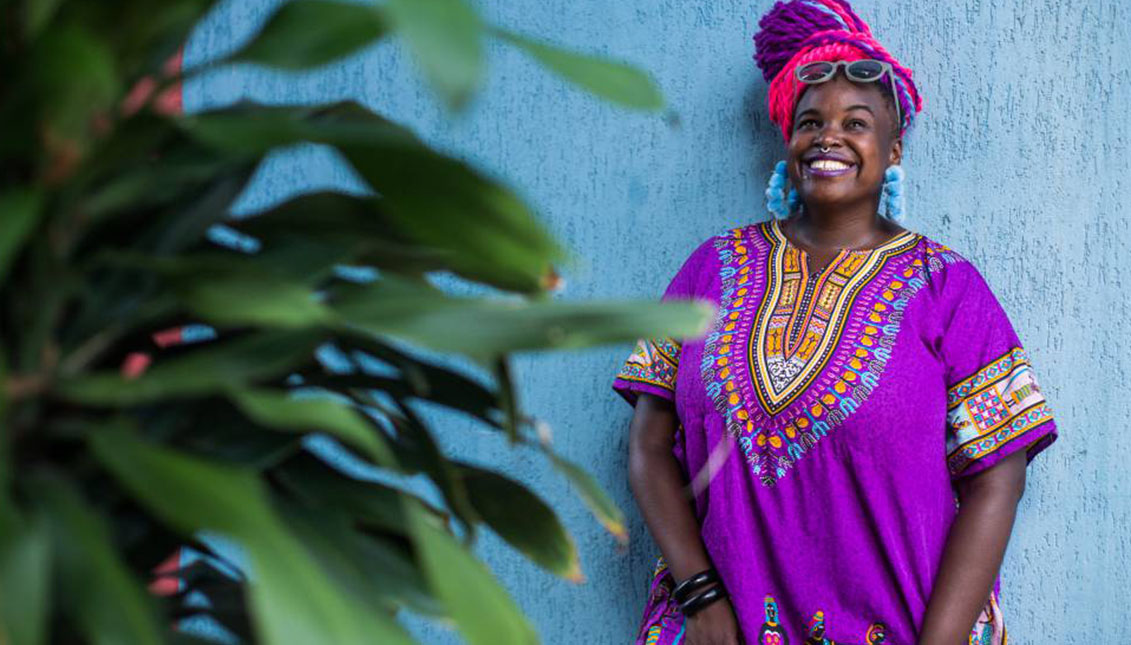
Preta Rara, the Afro-Brazilian writer and rapper who gave voice to domestic workers
With more than 166,000 followers on Instagram and a TV show on Globo, this daughter and granddaughter of domestic workers is the "scourge" of racism and abuses…
In Brazil, a country facing deep inequality, most of the six million domestic workers serving in wealthy households are black women with little formal education-according to a 2019 government report.
Each of these employees works an average of 50 hours a week, and their wages, believe it or not, are 92% below the minimum wage.
Joyce Fernandes (35), born in Santos, a coastal town in the state of São Paulo, was "predestined" to serve as her mother and grandmother - "they always said there was no point in getting an education,” she explained in an interview with NYT.
Joyce had grown up with her siblings watching television. The neighborhood was a tough place, and her parents feared for her safety. Even then, soap operas and variety shows exemplified the country's criminal racism, with black actresses and actors turned into servants.
Could she avoid repeating the same story?
She was smart, liked to read, and graduated from high school. But when she started looking for a job, interviews didn't come until she made a radical change to her resume - eliminate her blackness.
“Employers think of you as their private property."
"I sent out my résumé without a photo, and the next week I was flooded with calls to come in for interviews,” she told journalist Ernesto Londoño. “That’s when I realized just how cruel Brazil could be for Black people.”
However, Joyce could not get a job when she went to interviews, and they discovered that she was Afro-Brazilian.
She had no option but to follow her mother's path and clean houses.
"(My mother) became sad," she said. “She knew I would soon experience the things she went through.”
Her mother was right.
What went on inside some houses only the cleaners knew, and it was a horror.
Several of her employers only allowed her to eat the leftovers of what she prepared for them; she couldn't use some of the bathrooms; and she was often given a dirty, tatty uniform, among many other things.
"Employers think of you as their private property," she told NYT.
One day one of her bosses saw her reading a book while dusting the room. Joyce thought he was going to scold her, but the man encouraged her to go to college. And she did.
RELATED CONTENT
Eventually, the Afro-Brazilian got a job as a high school history teacher, but she still remembered the abuse.
Until four years ago, she decided to share her experience on Facebook. And incredibly, many other domestic workers reacted by sharing their stories of harassment and even sexual abuse at work.
That's where #I'amAMaid started.
After the flood of experiences that these women shared on the networks under the hashtag #I'amAMaid, Joyce Fernandes turned her life around.
Fernandes collected these stories and the experiences of the women in her family and published a book in 2019 recounting the abuses.
Her mother was kidnapped as a child and forced to be the maid of a family that made her "sleep in a little wooden box next to the dog kennel.” The authorities rescued her after the neighbors denounced the situation. From then on, she became a domestic worker.
“I believe that by making people feel uncomfortable is the only way things change.”
The book exploded like a bombshell in Brazil. The media began interviewing Joyce and she did not hesitate to point out the oppression and inequality experienced in the country, especially by racialized women.
“I believe that making people feel uncomfortable is the only way things change,” the writer stated.
Today, with more than 166,000 followers on her Instagram and also turned rapper, Preta Rara (unique or singular black) continues to tell them about police brutality, sexual abuse, stereotypes, and all the problems, in short, that plague her country. And many others.












LEAVE A COMMENT: